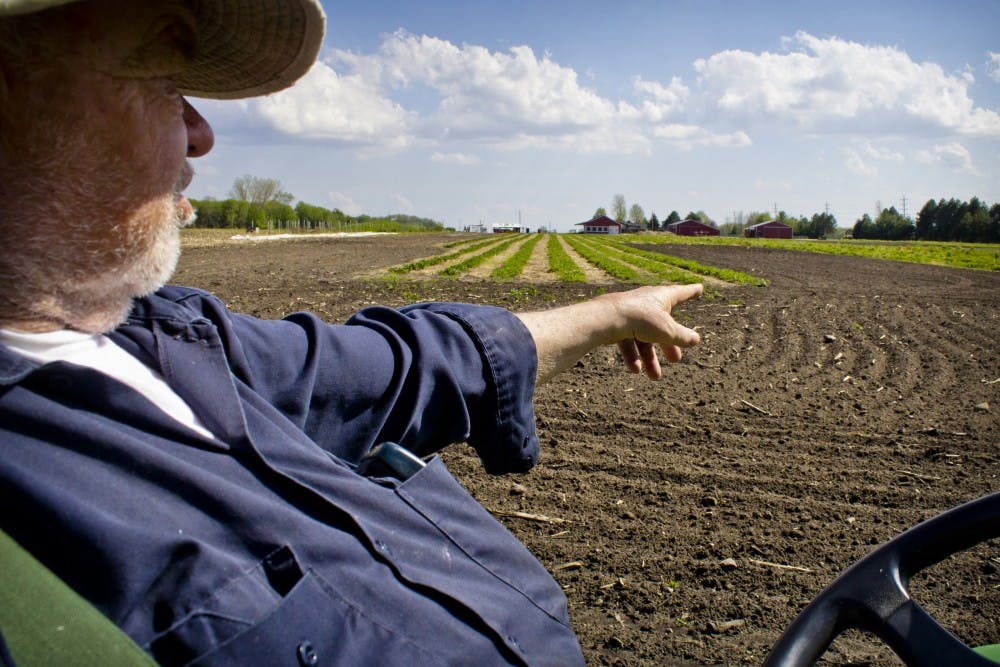Central Michigan businesses rely on homegrown products to increase agricultural tourism
[gallery type="slideshow" ids="187486,187487,187488,187489,187490,187491,187492" orderby="rand"]
Agriculture and tourism are two industries in the central Michigan area that aren’t completely dried out just yet.
Businesses in and nearby Mount Pleasant are relying more heavily on homegrown products, and they’re slowly starting to see the results pay off from out of state visitors.
Janice Benson, executive director for the Michigan Agri-Tourism Association, said agriculture and tourism are two of the most important components to Michigan’s economy.
“They’re really at the forefront in Michigan," Benson said. "A lot of people thought agriculture was struggling a few years ago, but agriculture is still growing in our state. A lot of younger people are starting to get into the field, and businesses are starting to realize they get more value out of specialty products rather than just apples.
"The whole farm to table movement has really exploded with wineries, breweries.”
Mount Pleasant is no exception in how businesses rely on homegrown products, according to the Mount Pleasant "Wow" tourism campaign. Many restaurants like the Brass Café and microbreweries like Hunter’s Ale House have their own gardens where they grow their own food and make their own beer.
Chris Rowley, executive director of the Mount Pleasant Area Visitors and Convention Bureau, said businesses relying on products grown locally are the next step in promoting agri-tourism in the area.
“It’s an up and coming thing for agri-tourism, and we want to promote that, so we have (included) the locally grown page,” Rowley said. “As far as restaurants that have their own gardens, I think that’s the next step in agri-tourism.”
Papa’s Pumpkin Patch is one example of a business in Mount Pleasant taking strides to improve business based on locally-grown products. Known for growing 12 acres of pumpkins, more than 10,000 pounds of asparagus and 3,000 pints of raspberries, Papa's sells its products over the counter at their in-house store, located at 3909 S. Summerton Road.
Bill Miller Jr., co-owner of Papa’s Pumpkin Patch, said selling local products helps his business since patrons are recognizing the downside of relying on boxed products shipped in from other countries.
“One thing that we’re finding out is people like locally grown food and other used things," Miller said. "The stuff in the stores that come in boxes, they’re using chemical that were banned in the United States in the 1950s, and people are just now learning that. That is getting to be a big, big thing.”
Another component helping agriculture in Michigan is the Right to Farm Act. Miller said the act has given him more freedom and flexibility with Union Township and the farm he works on.
"I couldn’t have signage, parking, lighting, give rides or sell product because it was all zoning violations," Miller said. "The (MDoA) feels if you have a farm and you grow products, you should be able to sell them. The townships didn’t feel that way.”
Aaron Hale, a wine maker at Hometown Cellars Winery in Ithaca, said it’s a tough economy for wineries, but tourism helps out businesses a lot.
“Winery and brewery tourism is big nation wide," Hale said. "We get visitor all the time from out of our area coming in while on trips. We often times give tours from those out of state, as far as New York, Pennsylvania, Tennessee and Missouri"





